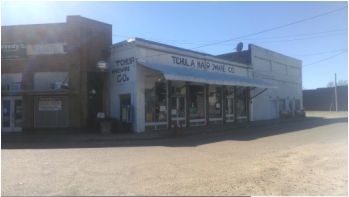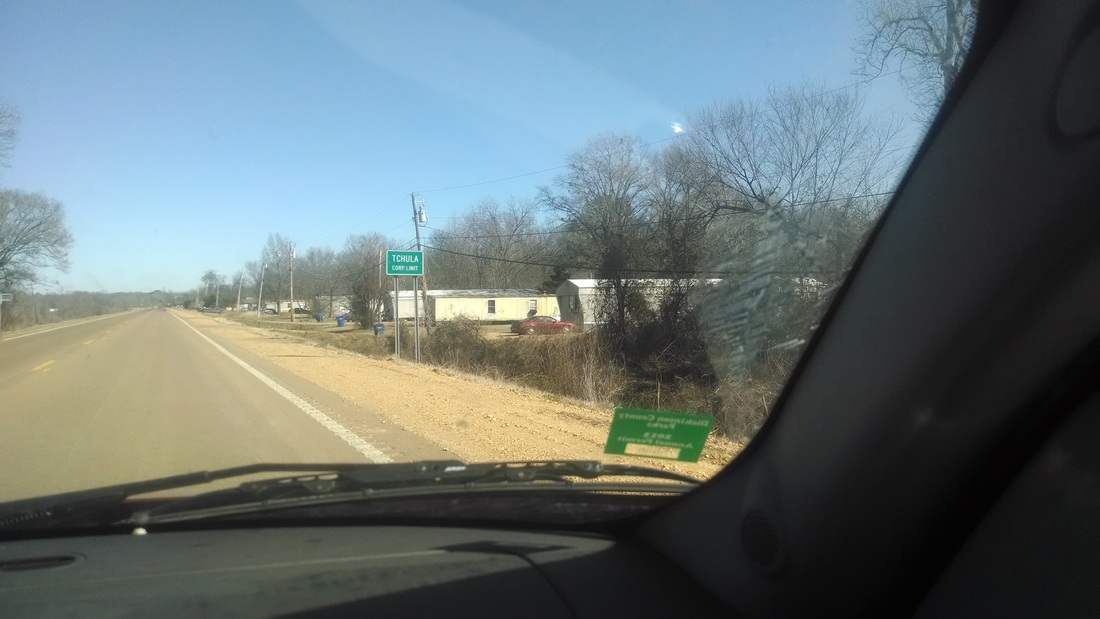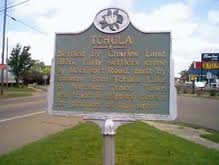 About 30 years ago I took a trip with a college group down to Tchula, MS. We were suppose to go help pick cotton, but it ended up that the ground was too wet, so instead we painted a grocery store. Since I was driving through the area we took a detour off of the interstate and drove through the Mississippi delta to Tchula. I have always told myself that if you anticipate that places one revisits have dramatically changed that one is surprised by how much they are the same. From my very short visit I found Tchula had some improvements, but it was remarkable how much the same it felt. A white Wisconsin farmer organized these trips to Mississippi. He had become friends with Eddie Carthan who was a farmer and business man in Tchula, Ms. He had heard about Eddie in the early '80s during the long court case of the Tchula 7. As a fellow small farmer something resonated with this Wisconsin farmer and he committed to help the cause of the struggling famers and citizens of Tchula.  The story of Eddie Carthan and the subsequent legal fight and the class action law suite on behalf of black farmers is remarkable. With broad strokes the story is that the majority black population voted in their first black Mayor sometime around 1980. The first days in office the local white Sherriff came and arrested him and his cabinet of 7, with a variety of trumped up charges. In short it was a coup. Years later the US supreme court finally brought the innocent to justice. The struggle in Tchula has been about disenfranchisement and slow economic development. If you remember during emancipation freed slaves were promised 40 acres and a mule. Very few actually received the 40 acres or the mule, but farming became a viable occupation for many blacks through out the rural south. While it is an important for the community to hold on to property and an important occupation, it continues to diversify the economy.  During this visit I noticed that there were a lot of young men standing around. It was Sunday, and Martin Luther King weekend, so who knows what the employment opportunities are. Thirty years ago the young men tended to leave home, since the 70's and even 80's were violent times. We were told that nearly ever month there was someone lynched or a body floating in the river. During such a short visit one cannot tell that much. The town has grown in 30 years, but apparently in the past 10 years has dropped. Back then most people lived in dilapidated shotgun houses, likely left over from plantation days. Today half the village is mobile homes.  I was surprised to see that while there was an school outside of town that in Tchula itself it still had a "Learning Center" as did other towns that we passed. In the past these were very under resourced education centers that did not prepare students sufficiently. I don't know what kind of education these schools provide. One thing I remember about my visit thirty years ago was while we were painting the grocery store. Some little kids came to watch us paint. They brought a boom box with them and I recall hearing (over and over again) Tina Turner singing "What's Love Got To Do With It". Another memory was attending a little country church in the middle of a cotton field. It was a single room furnished sparsely with wooden benches. The room was crowded with about 15-20 people, eight of us college students from Wisconsin. EconomyTchula, MSUnited StatesUnemployment Rate16.60%8.60%Recent Job Growth1.24%0.35%Future Job Growth25.88%32.10%Sales Taxes7.00%5.00%Income Taxes5.00%4.70%Income per Cap.$10,524$26,154Household Income$15,637$50,935
1 Comment
|
Tchula, Mississippi |








 RSS Feed
RSS Feed